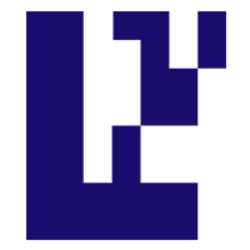Language
- English
- Română
Currency
- $ USD
- € EUR
SocialFi protocol Lens releases Lens Chain mainnet with Avail DA and ZKsync tech

More News Articles
ZKSync developer, Matter Labs dragged to court for IP theft
ZKSync's parent company, Matter Labs, has been sued by Bankex, a now-defunct digital asset banking platform, which has accused it of intellectual property theft.
Matter Labs, ZKsync Developer, Sued for Alleged Intellectual Property Theft
Matter Labs, the company behind layer-2 blockchain ZKSync, has been sued by BANKEX, a defunct digital asset banking platform, for intellectual property theft.
Zksync to hackers: Return 90% of stolen funds to avoid criminal liability
The Zksync team has given the hackers behind a recent exploit a 72-hour ultimatum to return 90% of stolen funds, or face criminal liability.
Top 3 Crypto Airdrops For The Fourth Week of April
The crypto market is attempting a recovery, with Bitcoin (BTC) nearing the $90,000 milestone. Amidst improving sentiment, several startups are launching enticing airdrops, providing crypto enthusiasts with opportunities to engage with budding platforms without initial financial input.
ZKsync tokens worth $5M reportedly swiped in admin account breach
The Ethereum scaling-focused ZKsync team said one of their admin accounts was accessed and compromised, leading to the theft of over 100 million tokens.
Hacker Steals ZKsync Airdrop Tokens Worth $5 Million, Disrupting Ethereum Based Layer-2 Scalability Network
ZKsync suffered a breach, resulting in $5 million in stolen ZK tokens. An admin account, particularly one with links to smart contracts responsible for airdrops, was compromised.
KiloEx Offers Bounty as ZKsync Investigates Admin Breach
ZKsync and KiloEx are responding to separate security incidents involving a combined loss of over $12 million, as both platforms work with partners to recover funds.
ZKsync Confirms $5M Airdrop Exploit, User Funds Safe
Hacks are, unfortunately, rather common in crypto. However, a hack of the airdrop funds is rather unusual.
ZKsync Hit by Admin Hack, Attacker Mints 111 Million Extra Tokens
A ZKsync admin account was compromised on April 15, which allowed an attacker to mint about $5 million worth of unclaimed ZK tokens.
Ethereum Layer-2 ZKsync Airdrop Account Hacked for $5M
The administrator account for the Ethereum layer-2 scaling network ZKsync has been compromised, resulting in $5 million in losses.
ZKsync Confirms $5 Million Token Theft After Admin Wallet Compromised, ZK Price Falls 20%
On April 15, 2025, ZKsync confirmed that $5 million worth of ZK tokens were stolen after an admin wallet linked to the project's airdrop contracts was compromised.
Hacker mints $5M in ZK tokens after compromising ZKsync admin account
A hacker compromised a ZKsync admin account on April 15, minting $5 million worth of unclaimed airdrop tokens, according to a statement from the official ZKsync X account. The attack was described as isolated, with no user funds affected.Following an investigation, ZKsync detailed the incident on April 15, disclosing that the compromised account had administrative control over three airdrop distribution contracts.
ZKsync Crashes Following $5 Million Token Heist
ZKsync's admin account was hacked, stealing $5M in tokens. The project confirms user funds are secure.
Hackers Targeting Ethereum Scaling Network ZKsync Steal $5M in Tokens
The protocol said that all user funds were safe.
Ethereum Layer-2 ZKsync Suffers Exploit As $5,000,000 in ZK Tokens Drained
Ethereum (ETH) Layer-2 scaling solution ZKsync (ZK) has suffered a significant exploit, resulting in the loss of $5 million worth of ZK tokens. The breach, which targeted the platform's smart contract infrastructure, has been acknowledged by the protocol through a post to the social media platform X.
The Daily: ZKsync discloses $5 million admin account hack, bitcoin acts ‘notably different' from prior market pullbacks and more
The following article is adapted from The Block's newsletter, The Daily, which comes out on weekday afternoons.
ZKsync admin wallet compromised in $5 million theft, ZK slides over 8%
A compromised admin account connected to ZKsync's airdrop contracts executed a transaction that minted approximately $5 million worth of ZK tokens, stealing the remaining unclaimed allocation from the network's first token distribution. The attacker exploited a function to claim the tokens on April 15 and issued around 111 million ZK tokens, equivalent to roughly 0.
ZKsync airdrop exploit triggers $5M token theft as community cries foul
ZKsync confirms that approximately $5 million in airdrop tokens were stolen due to a compromised admin account.
ZKsync (ZK) Token Falls 8.3% After Admin Account Hack
TL;DR ZKsync suffered a cyber attack that compromised an admin account, stealing around $5 million in ZK tokens from unclaimed airdrop funds. The protocol ensured that user funds are safe and were unaffected, maintaining the integrity of the contracts and the ZK token. The attack caused a 8.3% drop in the price of ZK.
ZK token crashes after $5m airdrop exploit confirmed by ZKsync
ZKsync confirmed that a compromised admin account drained approximately $5 million worth of ZK tokens from its airdrop contract.
Zksync Admin Hack Drains $5M—Native ZK Token Plummets 13% in Minutes
On Tuesday, shortly before 10 a.m., Zksync revealed a breached administrative account had commandeered $5 million in ZK tokens. The cryptocurrency nosedived 13% against the U.S. dollar to $0.04151 in the wake of the announcement, erasing gains with algorithmic swiftness.
ZKsync Crashes 15% After $5 Million Hack and Token Dump Controversy
ZKsync announced that one of its admin accounts, which controlled $5 million worth of ZK tokens, was hacked. The project has also reportedly dumped more than 66 million additional tokens.
ZKsync discloses $5 million attack from compromised airdrop admin account, triggering 20% price drop
The ZK token, introduced in June 2024 through a controversial airdrop, is down approximately 15%, according to The Block's data page.
ZKsync's ZK token drops over 15% after airdrop contract exploit, $5 million stolen
The exploit highlights vulnerabilities in crypto airdrop security, potentially undermining investor confidence and impacting market stability. The post ZKsync's ZK token drops over 15% after airdrop contract exploit, $5 million stolen appeared first on Crypto Briefing.
ZKSync Admin Wallet Compromised, $5M Stolen
An admin wallet for layer-2 blockchain ZKsync was compromised on Tuesday with the hacker taking off with $5 million worth of ZK tokens.
EigenLayer expands restaking links with Mantle and ZKsync
EigenLayer has enhanced two major integrations, with Mantle Network and ZKsync adopting EigenDA for data availability and ZKsync also incorporating EigenLayer's Autonomous Verifiable Services (AVSs) for decentralized zero-knowledge (zk) proving. These partnerships expand EigenLayer's role in Ethereum's modular security landscape, reinforcing its position as the leading restaking protocol.
ZKsync Sunsets Ignite, Its Liquidity Rewards Program, Amid Market Challenges
The ZKsync Ignite program will be discontinued after its first season, with the DeFi Steering Committee (DSC) announcing that rewards will cease on March 17, 2025. The decision is driven by a strategic shift towards focusing resources on the Elastic Network, which is seen as essential for the long-term vision of ZKsync.
ZKsync Phases Out Ignite Rewards Program Due To Bear Market
The company behind ZKsync DAO prematurely ended its Ignite rewards program effective March 17, citing bearish market conditions.
ZKsync DAO Ends Ignite Early, Shifts Focus to Multichain Expansion
TL;DR ZKsync DAO ends the Ignite program ahead of schedule, avoiding the second season of rewards for DeFi projects due to market conditions and a more conservative strategic approach. The decision aligns with the priority of developing the Elastic Network, a multichain ecosystem within ZKsync that aims to enhance interoperability and efficiency in decentralized finance.
ZKsync Cancels 2nd Season of Incentive Program: Is the 19% ZK Selloff Just the Beginning?
ZKsync has announced the cancellation of the second season of Ignite and remains committed to its Elastic Network vision.
ZKsync Sunsets Liquidity Rewards Program, Citing Bearish Market Conditions
The blockchain has lost around 50% of total value locked since Jan. 30.
ZKsync sunsets liquidity program amid bearish market
ZKsync's DeFi Steering Committee (DSC) said it will not renew ZKsync Ignite, its liquidity reward program, as the project shifts its focus to broader network expansion.The DSC confirmed that Ignite's second season will not proceed and that the program will be discontinued on March 17. This also cancels the reward allocation for period 6, the final phase of the program's first season.
ZKSync discontinues its Ignite incentive program due to unfavorable market conditions
ZKSync will not launch Season 2 of its Ignite program, which aimed to boost available liquidity for DeFi. ZKSync will now focus on the Elastic Network and improve the ZK tokenomics to offset the bearish market conditions.
ZKsync sunsets ‘Ignite' token rewards for DeFi ecosystem, cites market conditions and focus on Elastic Network
The committee said that prioritizing technology development for native interoperability across ZKSync's Elastic Network is crucial.
Talking ZKsync and Layer 2s with Matter Labs CEO Alex Gluchowski
Matter Labs Co-Founder and CEO Alex Gluchowski explains why he sees ZK as the "end game" for blockchain tech.
From PENGU to zkSync: Pudgy Penguins' Massive Airdrop Windfall Explained
Beyond PENGU, airdrops from Dymension, Omni Network, zkSync, and LayerZero boosted Pudgy Penguins holders' earnings significantly throughout 2024.
Matter Labs CEO anticipates ZKsync governance will explore value accrual mechanisms in near future
Matter Labs CEO Alex Gluchowski said interoperability across the Elastic Network could add a new dimension to this potential value accrual.
1inch integrates zksync's ZK-roll up tech; to make cross-chain swaps more faster and secure
1inch, the decentralised exchange (DEX) aggregator, announced on Thursday its integration with zkSync, the Ethereum layer-2 scaling solution that uses zk-roll ups. In a bid to more faster and secure cross-chain transactions, 1inch will enable its users to make frequent or smaller trades with much lower gas fees using zkSync's Ethereum Layer-1 security.
1inch Elevates Cross-Chain Trading via ZKsync Alliance
1inch has woven ZKsync into its cross-chain swap architecture, empowering users to exchange assets across networks with accelerated processing and minimized fees. ZKsync Joins 1inch's Cross-Chain Ecosystem This upgrade aims to amplify 1inch's technical prowess, permitting asset transfers between blockchains via ZKsync's layer two (L2) framework.
1inch Expands Cross-Chain Swaps with ZKsync for Lower Fees, Faster Transactions
1inch Network expands its cross-chain capabilities by integrating ZKsync's layer-2 scaling solution, promising reduced fees and enhanced transaction speeds for users.
1inch Network Updates Cross-Chain Swaps to Feature ZKsync
1inch Network has added ZKsync support to its cross-chain swaps, providing traders with lower transaction fees and near-instant execution. With Fusion+ technology enabling gas-free transactions, the integration enhances DeFi accessibility while leveraging ZKsync's security and scalability. The post 1inch Network Updates Cross-Chain Swaps to Feature ZKsync appeared first on Cryptonews.
1inch Integrates ZKsync for Ultra-Fast, Low-Cost Crypto Swaps
TL;DR 1inch Network integrates ZKsync, an Ethereum scaling solution, to offer faster and cheaper cross-chain swaps. 1inch's Fusion+ technology enables fee payments through “relayers” who stake 1INCH tokens, benefiting users with lower costs. ZKsync, based on zero-knowledge technology, speeds up transactions while maintaining Ethereum's security.
The DEX 1inch enhances cross-chain swaps with ZKsync: faster and cheaper transactions
ZKsync pushes the DeFi sector towards a more efficient and secure future
DEX Aggregator 1inch Integrates ZKsync to Boost Cross-Chain Swaps
The integration aims to provide faster and cheaper transactions for users.
Swiss Banking Giant UBS Pilots Tokenized Gold on ZKsync Platform
Switzerland's largest bank UBS is testing a digital gold trading system called UBS Key4 Gold on Ethereum's ZKsync Layer-2 network, enabling fractional gold investments with real-time pricing and secure physical storage options.
The Swiss bank UBS explores blockchain for digital gold investments on ZKsync
The Swiss bank UBS, a global leader in the financial sector, is experimenting with an innovative blockchain solution.
Switzerland's Largest Bank Tests Tokenized Gold Product on Ethereum Layer-2 ZKsync
Union Bank of Switzerland (UBS), the largest bank in Switzerland, is testing a tokenized gold product on Ethereum (ETH) layer-2 scaling solution ZKsync (ZK).

































































